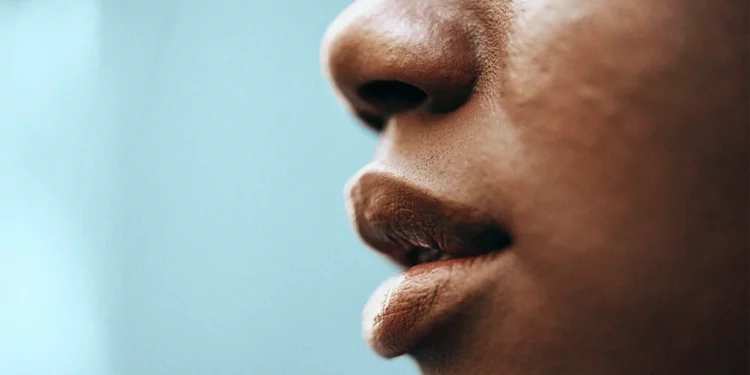Have you ever heard of stories about drugs causing foaming at the mouth? If so, you may want to know what they are.
Being wary of these drugs helps you be sure you follow the proper dosage. Despite this, it’s still good to know why it happens.
Here’s a look at what drug causes foaming at the mouth and why it occurs.
Table of Contents
Drugs That Can Lead to a Foaming Mouth
Consuming the correct dose of drugs can affect its effectiveness. Aside from this, it also makes an impact on the side effects.
The following are a few drugs that can lead to frothing in the mouth:
Anticholinergics
Anticholinergics include drugs like atropine and scopolamine. These block certain neurotransmitters, leading to dry mouth and thickening of saliva.
As a result, the individual might foam at the mouth while trying to speak or breathe.
Opioids
An overdose of opioids can cause a person to foam at the mouth due to a condition called pulmonary edema. It’s when fluid leaks into the lungs, causing frothy sputum that can be coughed up and mistaken for foam.
Stimulants
Stimulant drugs can cause hyperstimulation, which leads to excessive salivation. When mixed with rapid breathing, it can result in foaming at the mouth.
Antipsychotics
In rare cases, a foaming mouth may be due to certain antipsychotic medications. It happens because it interferes with the body’s temperature regulation. As a result, it causes excessive salivation and possibly mouth foaming.
Benzodiazepines
An overdose of benzodiazepines can lead to severe respiratory depression, which causes frothing at the mouth. It occurs as a result of the body’s attempt to get more oxygen, increasing salivation that can produce foam.
Barbiturates
Similar to benzodiazepines, taking barbiturates in large amounts can suppress the central nervous system. It results in slow and shallow breathing, causing a buildup of saliva that may foam when breathing or coughing.
Organophosphates
You can usually find organophosphates in insecticides and nerve gases. They inhibit acetylcholinesterase, which is an enzyme that breaks down neurotransmitters in the brain.
When inhibited, it can increase saliva production, potentially leading to frothing at the mouth.
Certain Antidepressants
Overdose of some types of antidepressants can lead to a condition called serotonin syndrome. It triggers various symptoms, including agitation, restlessness, and increased salivation.
When this happens, it can potentially lead to a foaming mouth. Although it’s rare, it’s still a serious side effect.
Ecstasy
Ecstasy, or MDMA, is a synthetic drug that alters mood and perception. It can interfere with body temperature regulation in high doses and when used in hot environments.
When combined with increased heart rate and blood pressure, it can lead to dehydration and dry mouth. As a result, you can end up foaming at the mouth to regain moisture.
Synthetic Cannabinoids
Synthetic Cannabinoids, often referred to as Spice or K2, are a class of designer drugs that affect the same brain cell receptors as THC. High doses can cause excessive drooling or foaming because of the drug’s extreme psychoactive effects. It also risks potential seizures.
Certain Antiepileptic Drugs
Certain antiepileptic drugs can cause foaming at the mouth if they prompt a seizure. It could occur if the dosage is incorrect or if the drug interacts with another substance, causing an adverse reaction.
Why Do Drugs Cause Frothing at the Mouth?
It’s important to note that side effects involving a foaming mouth are usually due to misuse or overdose of certain medications. So, it’s important to be sure you consume them according to the correct dose.
Otherwise, it can lead to other complications, which lead to a mouth seizure or foaming. The following are the common reasons improper drug consumption can lead to foaming:
Increased Saliva Production
Some drugs can stimulate the salivary glands to produce more saliva upon consumption. When this excessive saliva mixes with air during heavy breathing or talking, it can cause foaming at the mouth.
Dry Mouth and Thickened Saliva
When a drug blocks neurotransmitters, it can affect your saliva production. Because of this, you can end up with a dry mouth.
In this case, it makes the saliva thicken. So, when you try to speak or breathe, it can lead to foaming at the mouth instead.
Fluid in the Lungs
Opioid overdose is usually responsible for fluid leaking into the lungs. With this condition, you can develop a buildup that’s often frothy in nature. When you cough it up, some people can mistake it for foam at the mouth.
Hyperstimulation
Stimulant drugs can cause hyperstimulation upon consumption. While it’s a common side effect, it’s crucial to be wary of the impacts it makes on your body.
In most cases, it can lead to excessive salivation. But when combined with rapid breathing, this might result in foaming at the mouth.
Temperature and Fluid Regulation
Certain drugs, such as Ecstasy or synthetic cannabinoids, tend to interfere with the body’s functions. These usually include the ability to regulate temperature and fluid levels.
It can lead to dehydration and a dry mouth. And so, it increases the chances of eventual foaming as the body tries to regain the lost moisture.
Seizures
Improper drug dosages can cause seizures that result in foaming at the mouth. It can also occur when the drug interacts with specific substances.
When this happens, it depends solely on the drug rather than a specific side effect. If so, you want to be sure you know the basics of how to deal with someone experiencing a foaming at the mouth seizure.
Increase Awareness by Learning What Drug Causes Foaming at the Mouth
When figuring out what drug causes foaming at the mouth, you will most likely come across several options. Although it includes a broad range of drugs, you should keep in mind that it usually happens because of misuse.
Even so, it helps to know which types of drugs can lead to such conditions with the wrong dosage. This way, you can maintain proper use and be more wary of what to do to avoid such side effects.
Check out the rest of our blog for more guides and tips.


 Home
Home









